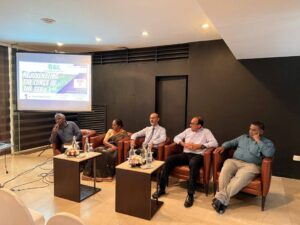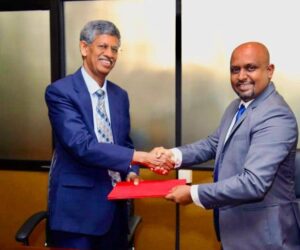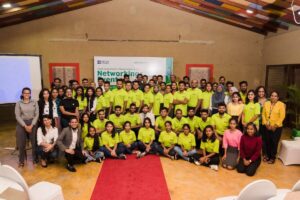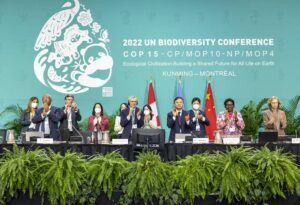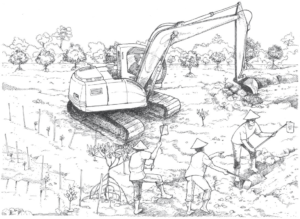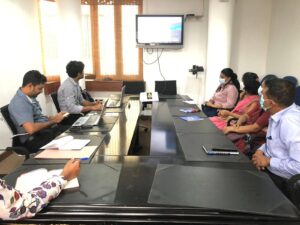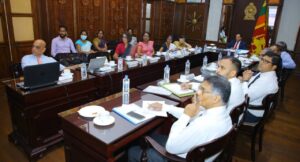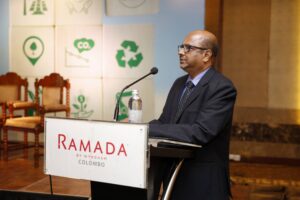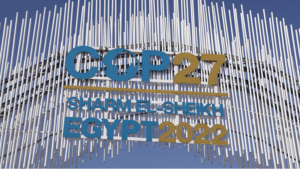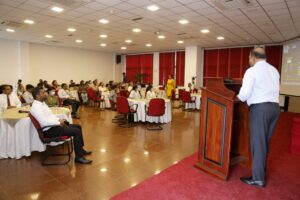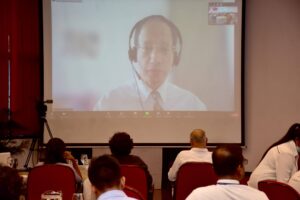Our CEO Forum was held on 3rd November 2022 at Ramada Colombo in the aftermath of its 7th AGM. Representatives from over 90 renowned private sector companies participated in the event. The keynote speech on the topic ‘Fresh Thinking, New Solutions: Ways to Fight Climate Change, was delivered by Dr. Ranjith Punyawardena, Chairman, National Steering Committee on Climate Change Adaptation, Ministry of Environment, Sri Lanka & Former Principal Scientist (Argo-Climatology)- Department of Agriculture, Sri Lanka.
Dr. Punyawardena commenced his speech on an interesting note, indicating the disappearance of glaciers on Mount Kilimanjaro from 1912, 1970, 2000, and 2006, as pictured by the Swedish Chemist Svante Arrhenius. He also explained how the greenhouse effect, global warming & climate change has had a drastic adverse impact on temperatures, also mentioning how the last 7 years are ranked as the top 7 hottest. He then defined the terms ‘Climate Variability’ & ‘Climate Change’ by indicating adaptation or resilience building for natural climate variability carried out through the Village Tank Cascade System in the Dry and Intermediate Zones of Sri Lanka, harnessing the potential of reliable climatic regime and terrain through the Village Anicut Systems in the Wet and Intermediate Zones of Sri Lanka.
Dr. Punyawardena next highlighted the salient features of climate change in Sri Lanka, which is the slow and continuous rise of ambient temperature, especially the nighttime minimum temperature and heat stress. He also highlighted the future climate of Sri Lanka according to the AR5 RCP 4.5 Scenario (mean across all 3 climatic zones) and trends of Summer Monsoon (SWM) and Winter Monsoon (NEM), following which he explained the options available for combatting the climate crisis – adaptation, mitigation or no actions.
The world is warming faster than at any point in recorded history. Several important events have occurred during the past years, such as the temperature rising by 0.08oC per decade since 1880, and the rate of warming is increased by more than twice (0.18oC per decade) since 1981. 2021 has been the sixth-warmest year on record. Thereby, Dr. Punyawardena highlighted the need to reduce global warming through new solutions or Nationally Determined Contributions (NDCs), which is a climate action plan of a country to cut emissions and adapt to climate impacts in order to ensure a safer future below the 1.5oC threshold. He then explained in order to ensure a safer future below the 1.5oC threshold, it requires the world to cut 30 Gg GHG emissions annually by 2030. Therefore, the Paris Agreement/UNEP has identified the 6-sector solution, which can reduce 29-32 Gt CO2e and limit temperature rise to 1.5oC; Energy – 8.2 Gt, Industry – 5.4 Gt, Agriculture, Food & Waste – 6.7 Gt, Nature-based climate solutions – 5.9 Gt, Transport – 4.7 Gt and Building & Cities – 5.9 Gt. Finally, he briefed on Sri Lanka’s commitment to NDCs, to reduce GHG emissions by 14.5% by 2030, including an unconditional reduction of 4%, establishing 2030 targets to achieve 70% renewable energy in electricity generation while no further increase in the capacity of its coal power plants and also Sri Lanka expecting to achieve Carbon Neutrality by 2060 while Carbon Neutrality in electricity generation by 2050. He also explained the Mitigation NDCs and Adaptation NDCs of Sri Lanka.
As an ending note, Dr. Punyawardena mentioned some points for serious consideration such as the political commitment to climate actions, and the availability of an effective and inclusive engagement process in place to ensure that society accepts and adopts the proposed NDCs. He opined, are we ready with a strong supporting and coordination mechanism to ensure effectiveness and efficiency of NDC implementation, while avoiding overlaps during the process, are there any conflicting issues or synergies between post- Covid 19 recovery plans and Climate Actions, and trends of Sri Lanka’s GHG Emissions by Sector (Energy, Waste, Land-Use Change and Forestry, Agriculture & Industrial Processes) and Percent of Total Emissions for reflection by the participants.

